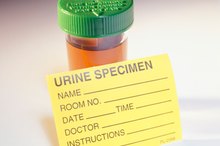What does fact checked mean?
At Healthfully, we strive to deliver objective content that is accurate and up-to-date. Our team periodically reviews articles in order to ensure content quality. The sources cited below consist of evidence from peer-reviewed journals, prominent medical organizations, academic associations, and government data.
- The Mayo Clinic; Grapefruit Juice: Beware of Dangerous Medication Interactions; Katherine Zeratsky, R.D., L.D.; November 2010
- “Journal of Endourology”; Quantitative Assessment of Citric Acid in Lemon Juice, Lime Juice, and Commercially-Available Fruit Juice Products; K Benniston, M.D. et al.; March 2008
- “Journal of Endourology”; Quantitative Assessment of Citric Acid in Lemon Juice, Lime Juice, and Commercially-Available Fruit Juice Products; K Benniston, M.D. et al.; March 2008
The information contained on this site is for informational purposes only, and should not be used as a substitute for the advice of a professional health care provider. Please check with the appropriate physician regarding health questions and concerns. Although we strive to deliver accurate and up-to-date information, no guarantee to that effect is made.
Can Too Much Grapefruit Juice Cause Bladder Problems?
There are a number of different bladder problems that can occur in humans. Kidney stones, bladder or urinary tract infections and overactive bladder are some of the difficulties you may experience with your bladder. Grapefruit juice is a beverage that many people enjoy; it may have beneficial effects on bladder problems but can also cause problems in some cases.
Grapefruit Juice and Medications
Grapefruit juice interacts with a number of medications, because it is metabolized in the liver by an enzyme that also breaks down many medications 2. Some of these drugs are used for bladder problems, such as antibiotics that may be used to treat a bladder infection. A drug called finasteride, which is used for prostate enlargement, can be affected by grapefruit juice, and an enlarged prostate can cause bladder problems such as urinary dribbling or a frequent need to urinate.
Grapefruit Juice and Overactive Bladder
Does Cranberry Juice Prevent Kidney Stones?
Learn More
Overactive bladder is a condition in which people need to urinate frequently. A high fluid intake can make the condition worse; some foods and beverages have been implicated as increasing the symptoms of overactive bladder. Citrus fruits such as grapefruit may make overactive bladder symptoms worse because of their high acid content, and the manufacturer of a drug used for overactive bladder recommends that citrus fruits should be avoided if you have overactive bladder.
Kidney Stones
Grapefruit juice is actually beneficial in the case of kidney stones. The most common type of kidney stone is the calcium-based stone, in combination with oxalate or phosphate. Citrate or citric acid has been found to decrease calcium in the urine and help promote calcium excretion, according to research published in the March 2008 “Journal of Endourology.” Although lemons and limes are the best source of citric acid, with 48 and 46 g/L respectively, grapefruit juice still has about half that much—25g/L.
Urinary Tract Infections
What Liquids Can Best Help You Urinate?
Learn More
When you have a urinary tract infection, you should drink extra fluids. The University of Maryland Medical Center says that while drinking more fluid is important, you should avoid sweetened fruit juices of any kind. Although cranberry juice has been found to help with urinary tract infections and the UMMC recommends grapefruit seed extract for antibacterial activity in urinary tract infections, there is no evidence that grapefruit juice is helpful other than as a source of fluid.
Related Articles
References
- University of Rochester Medical Center; Grapefruit Juice and Medication Can Be a Dangerous Mix; Tom Rickey; January 18, 2005
- The Mayo Clinic; Grapefruit Juice: Beware of Dangerous Medication Interactions; Katherine Zeratsky, R.D., L.D.; November 2010
- The Mayo Clinic; Urinary Tract Infection in Women; Steven D. Ehrlich, N.M.D.; June 2010
- “Journal of Endourology”; Quantitative Assessment of Citric Acid in Lemon Juice, Lime Juice, and Commercially-Available Fruit Juice Products; K Benniston, M.D. et al.; March 2008
Writer Bio
Beth Greenwood is an RN and has been a writer since 2010. She specializes in medical and health topics, as well as career articles about health care professions. Greenwood holds an Associate of Science in nursing from Shasta College.









